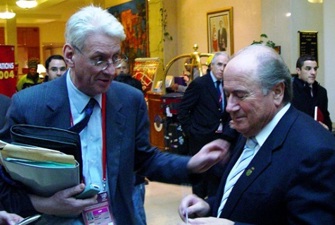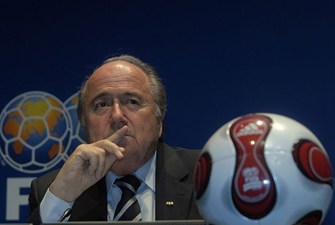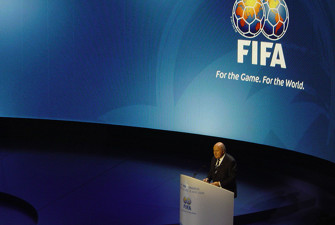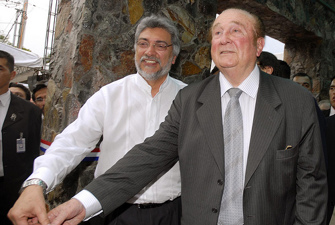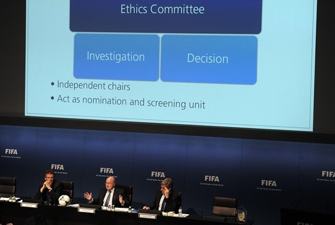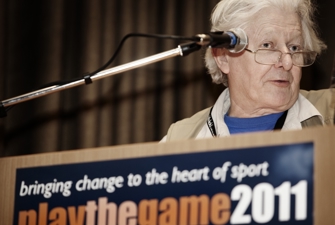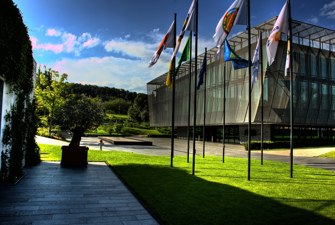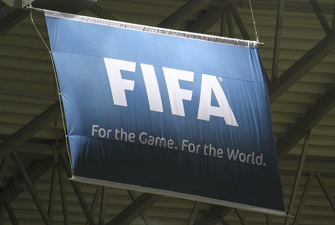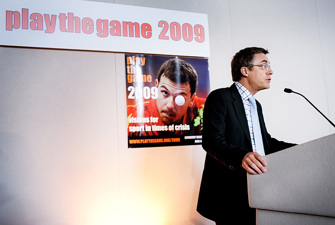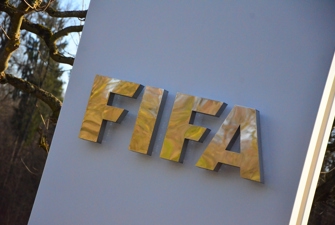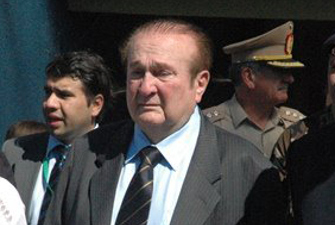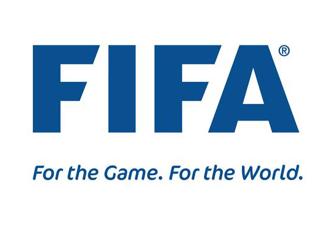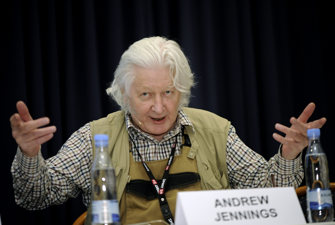FBI investigates Sepp Blatter through ISL link
Sepp Blatter is currently under investigation by the FBI over a letter linking him to the ISL affair, Andrew Jennings’ new BBC Panorama show airing tonight reveals.
The BBC today took a little wrap off what investigative journalist Andrew Jennings’ latest Panorama show, airing on BBC tonight, includes.
As observers had already guessed after the U.S. Attorney General Loretta Lynch released the latest, superseding, indictment into FIFA on Thursday, the U.S. authorities now also have an eye on FIFA president Sepp Blatter, writes the BBC.
According to the BBC, the U.S. authorities have documents that could compromise Blatter’s denial of wrongdoing in relation to the ISL scheme through which FIFA officials received more than 100 million euro in bribes from sports marketing company ISL for World Cup rights deals during the 1990’s.
In a letter obtained by the FBI, former FIFA president João Havelange writes that Blatter had “full knowledge of all activities” and was “always apprised to them”, writes The Guardian.
In May 2013, FIFA’s adjudicatory arm of the ethics committee cleared Blatter of wrong-doing in relation to the ISL affair. He may have been "clumsy" but his conduct "could not be classified in any way as misconduct with regard to any ethics rules," stated the FIFA report at the time.
A set of rather extensive reforms was presented to the FIFA executive committee on Dec 3, the same day that Swiss authorities made a second set of arrests and another 16 FIFA officials were indicted by the U.S. Attorney General’s office making the total number of defendants reach 27.
FIFA’s reform package does address essential issues in the former governance tradition in FIFA. The most remarkable proposal is probably to replace the Executive Committee by a ‘Council’ that will have a more guiding and strategically directing role and have relatively little decisive power on day-to-day basis. This is the one of the key moves in a reform package that looks to separate the management part of the organisation from the political.
The package, which was presented by chairman of the 2016 FIFA Reform Committee, François Carrard, also includes proposals to limit terms of office to three periods of four years, integrity checks, more transparency regarding remuneration of officials and more women in official positions among other things.
The FIFA reform proposals include lots of good potential, says sports governance expert Roger Pielke, but points to FIFA’s notion of ‘independence’ as somewhat misinterpreted.
“…the most revealing evidence that FIFA just doesn't "get it" is its newly proposed definition of what it means to be "independent" of FIFA. One can receive up to $125,000 from FIFA, or related organizations, per year and still be considered "independent”," Pielke writes in a blog post.
Pielke calls for FIFA to outsource the defining of criteria such as ‘independence’ to people outside FIFA.
“Trying to keep this in-house defeats the purpose, and as we have seen, reveals that FIFA isn't quite ready for what true independence implies,” he writes.
Declan Hill, Canadian match-fixing expert and author, was more direct in his response to the reform package, which he regards as merely superficial.
“What good do all these paper plans do if so many of their executives are corrupt? You can put lipstick on a pig – it is still a pig,” Hill wrote in a blog post after the reform package was presented.
For the reform package to take effect, the FIFA Congress’ 209 members need to vote in favour of the proposals when they meet for the extraordinary congress on 26th February. This congress is also planned to elect a new FIFA president.
Runners in the race to take over the post are Ali bin Hussein, Salman Bin Ibrahim Al-Khalifa, Jérôme Champagne, Tokyo Sexwale and Gianni Infantino.
